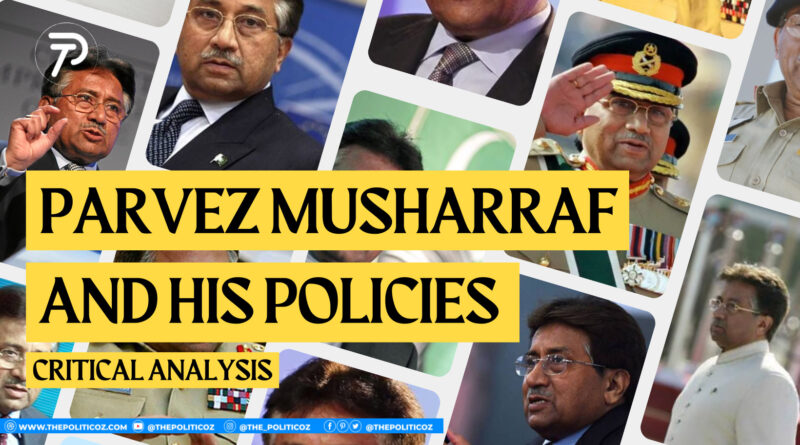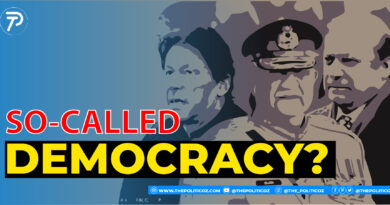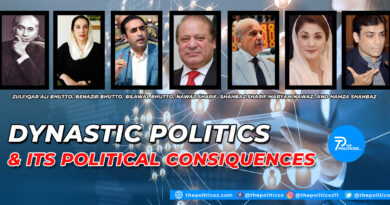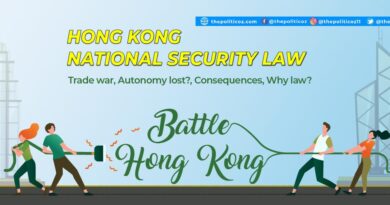Parvez Musharraf and His Policies | Critical Analysis
Parvez Musharraf and His Policies | Critical Analysis
Critical Evaluation:
- Introduction
- The Constitution suspended following the 1999 coup
- Terrorism and extremism policies
- American terrorism campaign
- Economic measures
- Relations with India
Introduction:
From 2001 until 2008, General Pervez Musharraf presided over Pakistan as president. He was a divisive figure in Pakistani politics. Some people view him as a strong leader who provided peace to the nation and aided in the expansion of its economy, while others criticize Pervez Musharaf and his policies, and deeds, particularly his decision to impose martial law and suspend the constitution in 2007.
Human rights violations and a lack of democracy were two of the key critiques of General Musharraf’s leadership. He toppled Prime Minister Nawaz Sharif’s democratically elected administration in 1999 by seizing control in a military coup. General Musharraf was accused of executing people without a trial, torturing them, suppressing the media, and restricting civil rights while serving as president.
General Musharraf’s stances on extremism and terrorism have also drawn criticism. Although he conducted a series of military operations against terrorist organizations in Pakistan, others contend that his efforts served only to strengthen the uprising and reduce security in the nation. In addition, some individuals thought that Pakistan’s independence and sovereignty would suffer as a result of his tight ties to the US in the fight against terrorism.
General Musharraf has a conflicted track record when it comes to economic issues. Although he did initiate changes aimed at boosting the economy of the nation, others contend that these reforms fell short of what was necessary and that the citizenry did not equally benefit from economic progress.
Read: Energy Crisis: Electricity and Gas Shortages
Here are the policies that General Parvez Musharraf has received a lot of flak.
1. Suspension of Constitution by Parvez Musharaf
One of the most contentious decisions made by General Pervez Musharraf during his presidency was the suspension of the constitution in 2007. Many people in Pakistan believed that the suspension of the constitution and implementation of martial law was an outright assault on democracy and the rule of law.
The acts of General Musharraf, according to his detractors, were a transparent attempt to strengthen his hold on power and crush political opposition. The suspension of the constitution gave General Musharraf the power to rule by decree while also suspending the authority of the judiciary and other democratic institutions. This was widely regarded as a misuse of authority and a danger to the nation’s stability.
The suspension of the constitution was also believed to have affected the judiciary’s independence. Many judges were forced to resign or be removed, and the Supreme Court was unable to exercise its constitutional authority. The legal profession, which saw the suspension of the constitution as a clear attack on the independence of the judiciary, reacted by voicing numerous complaints and criticisms.
In conclusion, General Pervez Musharraf’s suspension of the constitution was roundly criticised as a serious assault on Pakistan’s democracy and rule of law. It was perceived as a power grab intended to silence political dissent and compromise the independence of the court, and it has had a long-lasting effect on the political climate of the nation.
Read: Top 10 Revolutionary Personalities & Their Revolutionary Works
2. Military Coup 1999 by Parvez Musharaf
One of the most important moments in Pakistan’s modern history is largely regarded as the military coup that General Pervez Musharraf overthrew in 1999. Some people consider the coup to be an outright assault on democracy and the rule of law. Some people believe that the coup was required to restore stability to a nation that was experiencing political unrest and economic collapse.

Critics contend that General Musharraf’s use of the military to seize power and remove the democratically elected Prime Minister, Nawaz Sharif, during the coup was a transparent attempt to consolidate his own power. The disruption of democracy and the overthrow of the popular will by the coup were considered threats to the stability of the nation.
The coup’s effects on human rights and civil liberties were also heavily criticized. Under General Musharraf’s leadership, there were limitations on media, censorship, and repression of political dissent. Human rights groups expressed outrage over this and criticized the coup, viewing it as a severe setback for Pakistan’s democracy and freedom.
The 1999 coup is thought to have left a mixed legacy in terms of how it affected the economy. While General Musharraf did execute economic changes, they were done so within the framework of an authoritarian government that repressed political dissent and civil liberties. Some contend that if these reforms had been implemented in a democratic setting, they would have been more successful and long-lasting.
In conclusion, General Pervez Musharraf’s military takeover of Pakistan in 1999 continues to be a contentious and divisive episode in Pakistani history. Others see it as a direct assault on democracy and the rule of law, a significant violation of civil freedoms, and a threat to human rights, while some see it as vital to restore stability and boost the economy.
Read: Notable Generals and Their Blunders
3. Policies on Terrorism and Extremism by Parvez Musharaf
General Pervez Musharraf’s anti-terrorism and anti-extremism measures during his time as president of Pakistan drew harsh criticism and are still up for discussion. Although General Musharraf implemented a number of measures to combat terrorism and extremism, many contend that these measures were unsuccessful and, in some circumstances, made the issue worse.
The anti-terrorism and anti-extremism activities of General Musharraf, according to critics, were marked by a lack of a unified strategic vision. Some of the military operations carried out against terrorist organizations in Pakistan were viewed as being indiscriminate and heavy-handed, which fueled the insurgency and resulted in significant civilian casualties. His tight ties to the United States in the fight against terrorism were also viewed by some as endangering Pakistan’s sovereignty and independence, and as a cause of unrest among the populace.
The fact that General Musharraf’s policies on terrorism and extremism did not address the underlying roots of the issue is another significant criticism. Many scholars contend that poverty, illiteracy, and political marginalization are the main causes of extremism and terrorism in Pakistan and that military operations by themselves cannot eradicate these issues. Some contend that the fundamental problems General Musharraf’s policies did not address ultimately rendered them ineffectual.
In conclusion, General Pervez Musharraf’s anti-terror and anti-extremism tactics continue to be debatable and receive harsh criticism. He tried a number of measures to address the issue, but many claimed that they were ineffective and even made matters worse. They assert as well that they failed to address the fundamental reasons for terrorism and extremism in Pakistan.
Read: Book Review: Pakistan’s Foreign Policy by Abdul Sattar
4. USA’s War on Terrorism by Parvez Musharaf
The impact of General Pervez Musharraf’s involvement in the American war on terrorism is widely regarded as having been mixed. On the one hand, General Musharraf worked closely with the US in its military operations in Afghanistan and the surrounding area and was a crucial ally of the US in its fight against terrorism. As it gave the US, a strategic partner in a difficult region, this cooperation was considered as crucial in the early stages of the war on terrorism.
However, there was also debate and criticism around General Musharraf’s close ties to the United States. Many Pakistanis felt that the US-led war on terrorism violated their nation’s independence and sovereignty, and they objected to General Musharraf’s alleged allegiance to US objectives. The US’s deployment of drone strikes and other military operations in Pakistan, which resulted in significant civilian losses and stoked anti-American sentiment, made matters worse.
Additionally, others believed that General Musharraf’s backing for the US war on terrorism undermined Pakistan’s efforts to combat extremism and terrorism. The military operations carried out by the US and Pakistan against extremist groups were criticized for being indiscriminate and heavy-handed, inflaming the insurgency, and killing a large number of civilians.
In conclusion, there is widespread agreement that General Pervez Musharraf’s contributions to the American war on terrorism have left a mixed legacy. He was a crucial partner of the US in its war against terrorism, but his close ties to the US also drew controversy and criticism, and some people believed they undermined Pakistan’s efforts to combat extremism and terrorism.
Read: Absence of Democracy & Way Forward
5. Economic Policies of Parvez Musharaf
General Pervez Musharraf’s economic policies during his time as president of Pakistan are usually seen as having a mixed impact. Even though General Musharraf made some efforts to boost the economy, many contend that these measures were ultimately insufficient and had a little overall impact.
A program of economic liberalization and reforms aimed at enhancing the business climate and luring international investment was one of General Musharraf’s most important economic initiatives. These reforms included steps like decreasing taxes, streamlining regulations, and lowering trade obstacles. Some contend that these changes fell short of being thorough enough and failed to address the structural problems that Pakistan’s economy is currently dealing with, including corruption and a dearth of infrastructure spending.
The growth of the nation’s IT industry was one of General Musharraf’s other top strategic priorities. During his leadership, the IT industry saw substantial growth thanks to the policies he adopted to support its expansion and attract foreign investment. Many contend that this boom was constrained to a small number of urban areas and that it had little bearing on the economy as a whole.
Macroeconomic performance during General Musharraf’s administration was marked by moderate growth, but it was also accompanied by rising inflation and a widening budget deficit. While there was some improvement in the economy during his president, many contend that this was more a result of positive external circumstances like higher oil prices than a result of his policies.
In conclusion, there is widespread agreement that General Pervez Musharraf’s economic policies have left a mixed legacy. While he did take attempts to boost the economy, many contend that the effects of his policies were limited and that they did not address the fundamental structural problems the Pakistani economy was experiencing.
6. Relations with India during Parvez Musharraf’s Tenure
On the one side, Musharraf made steps to strengthen ties with India, including a historic trip to Delhi in 2005, during which he and Indian Prime Minister Manmohan Singh signed a joint declaration outlining a schedule for bilateral peace negotiations. As it acknowledged the necessity to address Kashmir’s primary issue and take action to ease tensions along the Line of Control (LoC), the statement was viewed as a significant advancement in the peace process.
However, Musharraf was blamed for how he handled the Kashmir problem and for encouraging cross-border terrorism in the area. Kashmir, which is administered by India, saw an uptick in bloodshed after India accused Pakistan of supporting terrorist separatists there. Tensions between the two nations also rose as a result. Relations with India were also strained by Musharraf’s backing of the Taliban in Afghanistan and his inaction against terrorist organisations operating out of Pakistan.
Overall, despite Musharraf’s efforts to strengthen ties with India, his decisions in other areas and his approach to the conflict in Kashmir and the region as a whole resulted in a complicated and occasionally tense relationship between the two nations during his tenure in power.
Read: How India Surpassed Pakistan?
Conclusion:
The policies that General Pervez Musharraf implemented while Pakistan’s president is usually seen as having left a mixed legacy. While he did make significant progress in important policy areas including economic liberalization, the battle against extremism and terrorism, and the growth of the IT industry, many contend that his measures ultimately had a limited influence and did not solve the country’s fundamental structural problems.
Others see him as a hero for his efforts to stabilize the nation and boost its economy, while some see him as a traitor for his acts that threatened Pakistan’s democracy. And last, a person’s actions and personal interpretation of them will determine whether they are viewed as a patriot or a traitor.
In general, General Musharraf’s policies are still up for discussion, and his legacy is still difficult to understand. He continues to be a divisive figure in Pakistani politics. Others view him as an authoritarian leader who repressed democracy and human rights, but some see him as a visionary figurehead who brought stability and wealth to the nation.




